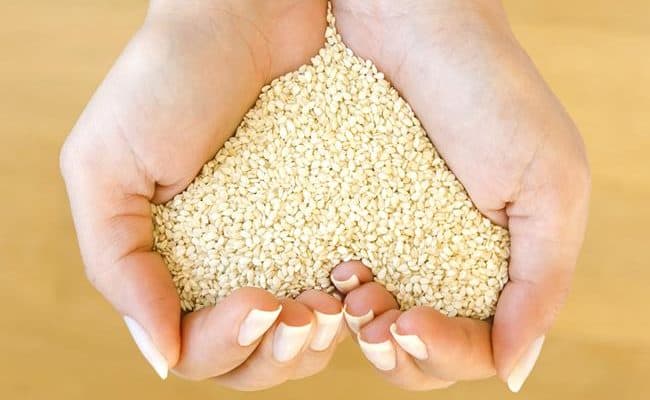
Vegetable oil is a catch all term for oil from plants. It is usually a combination of soybean, palm, corn, canola, sunflower, cottonseed or peanut oil, and it can be a mixture in various amounts of each. Although vegetable oil can be a mixture or plant oils, usually most vegetable oils are primarily soybean oil.
Vegetable oil is a common ingredient in much of the food supply and prevalent in processed food because it is a relatively cheap ingredient. The concern is that most Americans are getting too much vegetable oil, and there could be health consequences associated with this. Here is a closer look at why vegetable oil may be bad for you.
Benefits of Vegetable Oil
A benefit for vegetable oil is that it is a relatively cheap fat source, and it has a relatively high smoke point. Therefore, it is a common cooking medium.
Vegetable oils, and almost all plant foods, are low in saturated fat and cholesterol. Saturated fat and cholesterol is suggested to be related to increasing cardiovascular disease or possibly increasing risks for certain cancers according to some research.
The fact that vegetable oil is low in saturated fat and cholesterol has put vegetable oil in a positive light. Vegetable oil is a good source of vitamin E, polyunsaturated and monounsaturated fats. Eating primarily poly and monounsaturated fats is considered heart healthy according to the American Heart Association. Vitamin E works as an antioxidant in the body to protect cells from damage caused by free radicals.
Disadvantages of Vegetable Oil
Why would eating too much vegetable oil be potentially not a good thing? The reason for this has to do with the balance of two essential fatty acids humans need to get from the diet: omega 3 and omega 6 fatty acids. Both of these fatty acids are critical to health, and they have opposite functions in the body.
Some of the functions of omega 6 are increasing inflammation and increasing blood clotting. Omega 3 does the exact opposite, it is anti-inflammatory and reduces blood clotting. The concern with vegetable oils is that they are very high in omega 6 and lower in omega 3, and most Americans do not eat foods high in omega 3. Therefore, there is an imbalance of too much omega 6 and not enough omega 3.
Because vegetable oil is prevalent in the American food system, it is very easy to get too much omega 6 and not enough omega 3. This may increase risk for chronic diseases like cardiovascular disease because people are in a pro-inflammatory state.
Another concern with vegetable oil is if it is using hydrogenated oils. Although the use of hydrogenated oils is not as common, they are still in the food supply. Hydrogenated oils can increase risk for cardiovascular disease because it raises LDL cholesterol and lowers HDL cholesterol.
Is it bad for you?
Vegetable oil may have a place in the diet, but the concern is that most Americans get too much. The concern with this is that it can cause an imbalance of the omega 6/ omega 3 ratio. The question of is vegetable oil bad for you can be re-worded to how much vegetable oil are you having? Is it your primary fat source and how much omega 3 sources are you getting in the diet?
Try to diversify your oil intake to provide more than the standard vegetable oils. Olive oil, canola oil, avocados, fatty fish, flax and chia seeds are all good sources of omega 3 fatty acids.
Foods with vegetable oil
Foods that are common vegetable oil sources include packaged salad dressings, packaged chips, margarine, cookies, crackers and packaged nut butters can have added vegetable oils. By cooking your own food, you can control more what oils go into your food. For example, instead of using pre-packaged salad dressing, which is usually high in soybean oil, make your own dressing at home with olive or walnut oil and a balsamic vinegar.
Eating nuts or avocado for a snack instead of packaged chips and crackers can increase your omega 3 intake and lower omega 6 intake.
Conclusion
Vegetable oil is a combination of many different types of plant oils, and they are usually all high in polyunsaturated fats and omega 6 fatty acids. Although they are lower in saturated fat and cholesterol, getting too much of these oils may still increase risk for cardiovascular disease because they are high in pro-inflammatory omega 6.
It is all about balance and moderation when it comes to vegetable oils. They can have some benefits, but too much of it can backfire. A typical Western diet is high in vegetable oil intake because it is a cheap ingredient and has a high smoke point. Avoid vegetable oils that are hydrogenated, as they are the worst for heart health.
References used in this article










